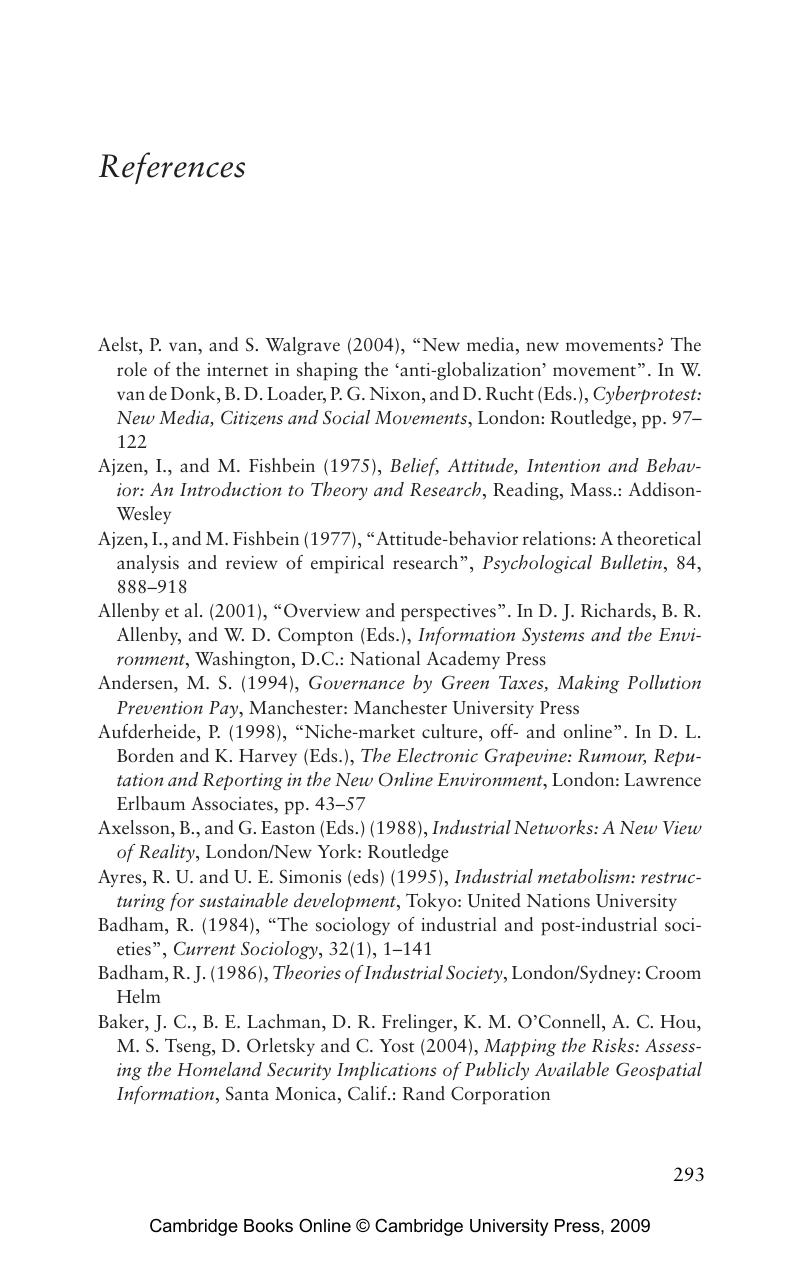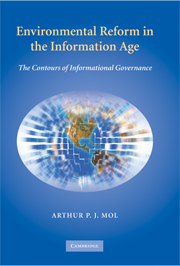References
Published online by Cambridge University Press: 03 November 2009
Summary

- Type
- Chapter
- Information
- Environmental Reform in the Information AgeThe Contours of Informational Governance, pp. 293 - 328Publisher: Cambridge University PressPrint publication year: 2008



